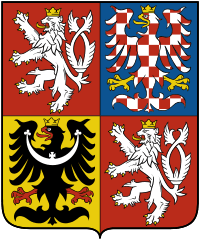Development of activities and modernization of the facilities at the Center for Development Care in the Neonatological Department of the University Hospital of Pilsen

Published
| Region | Plzeň Region |
|---|---|
| Title of the Programme | Public Health Initiatives - Activity II. Healthcare for children |
| Title of the Project | Development of activities and modernization of the facilities at the Center for Development Care in the Neonatological Department of the University Hospital of Pilsen |
| Number of the Project | --- |
| Project Promoter |
University Hospital of Pilsen |
| Objective of the Project |
University Hospital of Pilsen, in accordance with the focus of the Call, plans to expand the secondary and tertiary prevention activities by adding and expanding activities of the existing Child Development Centre (CDC). The project focuses on the multidisciplinary care that begins in the neonatal period and continuously goes to preschool age or possibly longer, and is coordinated and centred at one outpatient unit for the convenience of children and parents. The objective of the CDC is to minimize the consequences of perinatal disability of risk children, their integration into the family and the education system and the community, and thus allow the affected individual to participate in the prosperity of the community. The objectives are being met during the long-term monitoring of child development often up to the age of 2 years or more. The monitoring of the development and the active search for the first signs of impaired development is an effective instrument of the secondary prevention. The Pilsen UH CDC has prepared a set of measures and included them in the prevention system. The issue of the original neonatal patients is varied and combined, and it is important that after the proposed expansion of the unit operation it will be possible to address more problems within one visit. Within the newly established unit, it will be possible to extend the engagement of the psychologist who monitors in these children both their developmental quotient by planned methodologies and reveals disorders such as autism spectrum disorders. The special pedagogical care is indispensable in training and achieving alternative methods of communication in children with existing disorders. The simultaneous involvement of a special educator in the extent of few hours a week is insufficient and due to the growing needs of this care his/her engagement within the CDC will be extended. This implies the need to establish a new unit that will be simultaneously used by a clinical speech therapist. The speech therapy will already be included from the neonatal age when through an orofacial stimulation and first achieving the ability of eating will prepare conditions for the subsequent development of speech abilities of the child. To improve the quality of the environment, the waiting room will be decorated and the units will be furnished and equipped with toys and interactive elements in that way that the environment itself motivates the children. An integral part of the CDC child examination is the ultrasound inspection of various indications. For small children, the sonography can examine virtually any organ and tissue, however, the condition for it is the adequate image quality and suitable probe. Therefore, the ultrasound device must be equipped for examinations of small objects and tissue changes of any organ in the human body, both in the smallest children and the older ones. The purchase of a up-to-date ultrasound device will allow performing all the necessary small child ultrasound examinations within the CVC. This will eliminate the risk of infecting the child and at the same time it will increase the comfort for children and parents. Using a camera for retina eye examination will allow objective evaluating the retina examination findings in premature infants with retinopathy. The examination is friendly, it can be repeated as necessary and it can monitor the development of findings or timely indicate the medical intervention. At an early age, there are many other pathologic ocular findings that require ophthalmologic monitoring and treatment. Due to the fact that small children generally do not collaborate, the classic eye examination becomes difficult, often impossible, and for these cases the retinal camera is a significant contribution. Issuing a booklet for parents will help inform the parents and establish a good cooperation. It will contain important information such as health, medical, nursing, social care and other information. The aim is to give parents the description of the main diagnoses in perinatally endangered children in an intelligible form, explain the medical and nursing procedures and emphasize the sense of parent´s involvement in the developmental care. The publication will be prepared by a working group consisting of the neonatologist, ophthalmologist, psychologist, physical therapist, special educator and speech therapist. The implementation of the project will be ensured by Pilsen UH employees and its senior manager will coordinate and manage the implementation team for the entire duration of the project. He will ensure the public procurement procedures in accordance with the law and communicate with suppliers, Ministry of Health and other entities. |
| Approved grant |
Approximately 262 004 EUR |
| Project Duration | Start date: 1st January 2015, End date: 30th April 2016 |

